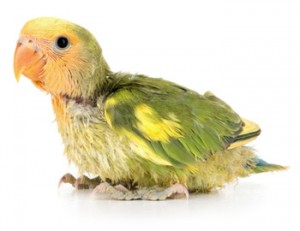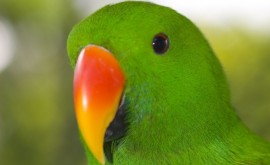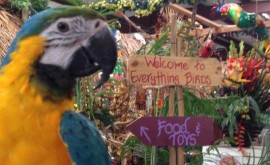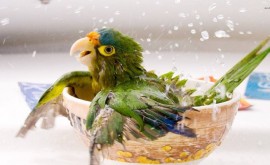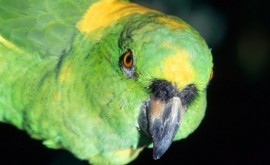The more prepared you are as a new owner, the easier your baby bird’s adjustment will be to his new home. Do your homework to learn all you can about living with a companion parrot, and use this checklist to smooth the transition:
☐ Place the cage in a location that shows human activity but is not in the flow of heavy traffic and will allow adequate sleep.
☐ Although birds should never be exposed to inhalant irritants, it is particularly important to avoid baby bird exposure to dust, exhaust fumes, cigarette smoke, cleaning agents, aerosol spray or other toxic fumes. Keep this in mind when planning cage placement.
☐ Set the cage up with a few familiar toys your baby bird has already used. Place foot toys on the cage bottom, arrange hanging toys from low perches.
☐ Place perches low for young birds that have not completely developed their climbing and balancing skills.
☐ Pad the cage bottom in case your baby bird falls from its perch, particularly if the cage bottom consists of a non-removable grate since the wings and tail feathers can become caught in a grate. Use a folded blanket or towel covered with newspaper, newsprint or butcher paper.
☐ Have all the foods on hand your bird is already eating—even if you plan on changing the diet.
☐ Placing food and water in sturdy crocks on the cage floor can initially provide your baby bird easy access.
☐ Now is a great time to get your young bird used to a water bottle, which will help keep your parrot’s water clean.
☐ Do not let basic quarantine principles “fly out the door” in the excitement of bringing your baby bird home! If you have multiple birds in your home, plan on housing your new bird as far as possible from other parrots, particularly breeding birds. The new bird should be fed and cleaned last, preferably by a different person. Quarantine new birds for a minimum of 4 weeks.
Go slowly with your baby bird during the first few days. If the bird appears to be settling in well, then gradually introduce family and friends. Perform introductions in a neutral room so your bird is not distracted by the security of their cage. Instruct new people to sit quietly. Only allow people to hold your bird that will do some gently and competently— no sudden moves or loud noises! Unlike puppies and kittens, the fully feathered baby bird appears very similar to an adult bird. But don’t forget your new bird is a baby and often relatively clumsy! Young parrots can injure themselves when they try to fly and fall to the floor. Do not allow your baby to climb too high on a play gym or to the top of his cage until it becomes quite athletic.
Reference Blanchard S. Companion Parrot Handbook. PBIC, Inc.; Alameda, CA, 1999.

